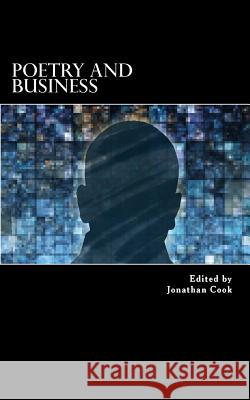Poetry and Business: 2016 » książka
Poetry and Business: 2016
ISBN-13: 9781523848164 / Angielski / Miękka / 2016 / 66 str.
Published on Groundhog's Day 2016, this new poetry journal dares to raise its head out of the darkness and proclaim a new season for poets who are ready to put their verse to work. Poetry and Business contains poems about the confluence of markets and metaphor, and essays that sift through the symbols of life on the clock.
Within both literary communities and corporate campuses, the presumption is that poetry and business are mutually incompatible. This presumption suits those who sit comfortably with poetry as it is, and with business as it is.
Neither poetry nor business are served well by those who sit comfortably with the way things are. Business and poetry alike are impoverished by their habitual separation.
This is the inaugural volume of a new kind of poetry journal, crossing the border between poetry and business. Poetry and Business seeks to continue the pilgrimage begun by poets such as David Whyte and Dana Gioia toward the uneasy boundary where executives and artists may trade with a common currency.
Poetry and Business is devoted to poems and essays that explore the borderlands where citizens of these two worlds may mingle. The journal features the work of poets curious about the unexplored metaphors of business life, as well as poems by corporate professionals who seek to introduce an element of the transcendent into their companies.
The worth of this project will be tested against an enduring challenge: Poets and people in business tend not to be very fond of each other. Business professionals usually scoff at poets as impractical, detached from the struggles with profit and loss that drive the production of material worth or lead to ruin. Poets, for their part, typically dismiss people in business as superficial sellouts who never pause to consider the deeper significance of life.
Oscar Wilde depicted this mutual antipathy over a hundred years ago, casting the capitalist as a cynic who "knows the price of everything but the value of nothing," and the "sentimentalist" as someone who "sees an absurd value in everything and doesn't know the market price of any single thing." The tragedy at the heart of this longstanding conflict is that the partisans of poetry and business are both so consumed by the importance of their own perspectives that they are unable to perceive what they share in common.
"One does not often mention poetry and advertising in the same breath," noted S. I. Hayakawa, speaking 69 years ago before the Sixth Conference on Science, Philosophy and Religion. Poetry and business are often seen as natural enemies, battling over the direction of of human life. In this battle, we are called upon to choose sides.
Will we be efficient, or will we be creative?
The truth is, we don't have to accept the idea that poetry and business will always be at war. We don't need to choose sides.
The choice between authenticity and productivity is a false choice. If we are not creative, we cannot be efficient. If our visionary fire sits outside a productive engine, it will simply burn itself out.
Inartful poetry and inartful business arise out of the same impatience: Their approach is too direct. Artful poetry and deft business both rely upon metaphor, the discovery of sacred value within mundane objects.
Poetry and business are well suited to one another because they turn each other aside from straight and easy paths. They corrupt each other's purpose, but in doing so, they lead to a higher purpose. They seduce each other onto strange paths that curve in unpredictable arcs that, wandering through the landscape, lead to enlightening experiences before they arrive at their destination.
The time has come for poets and marketers to take a turn at the plow together.
Zawartość książki może nie spełniać oczekiwań – reklamacje nie obejmują treści, która mogła nie być redakcyjnie ani merytorycznie opracowana.











